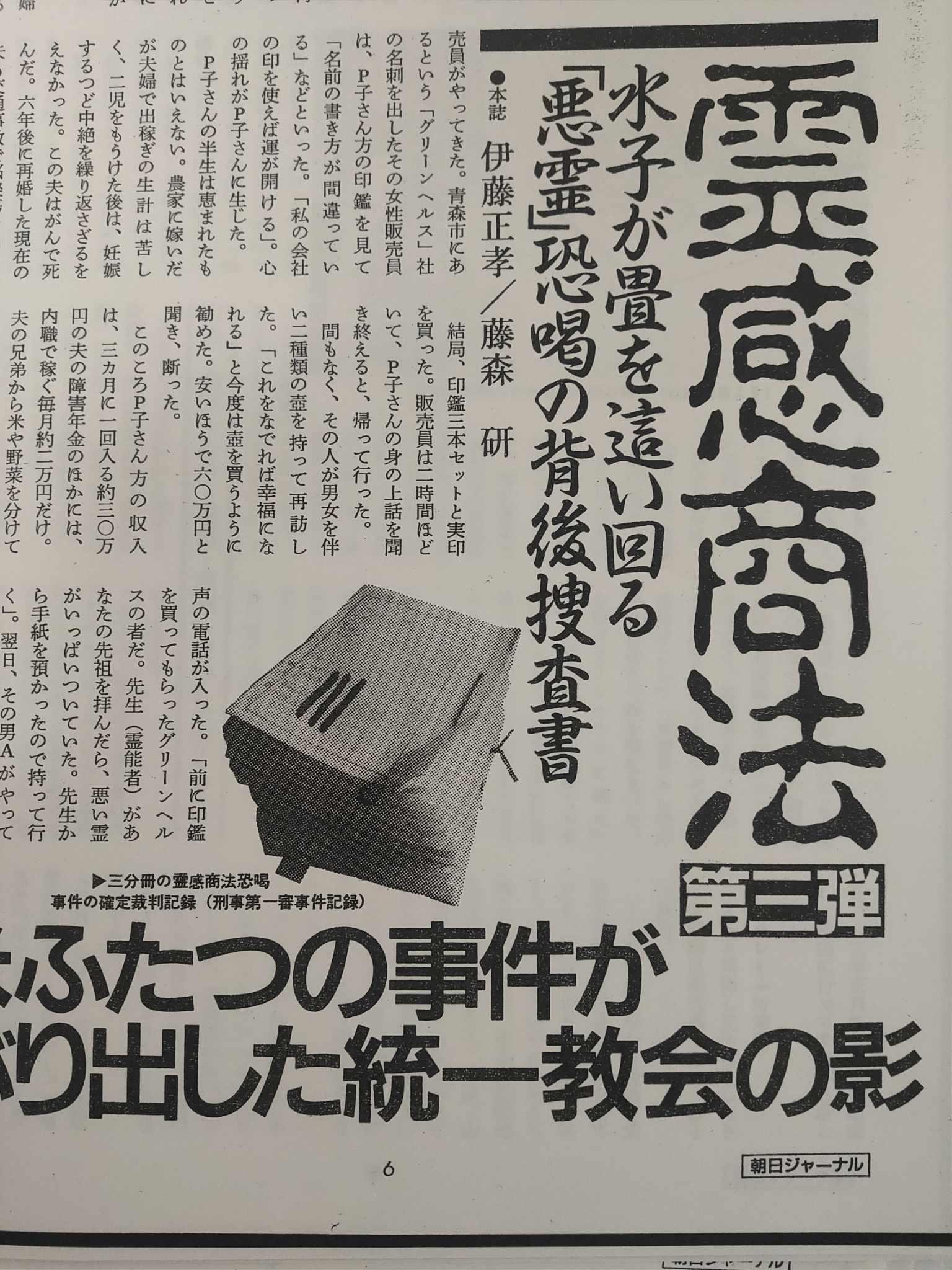by IOANNIS GAITANIDIS

Abstract: A core issue for media outlets and politicians since the assassination of Abe Shinz? has been monetary transactions between religious organizations and their current or former members. Anxieties surrounding religion’s role in the public sphere have informed legal arguments about consumer issues. A category of fraud called “spiritual sales” has become a particular concern. In this article, I describe how interpretations of consumer law have been instrumental in dealing with spiritual sales and I discuss reasons why problematic consumption practices associated with religions that have attracted intense criticism have led the Japanese government to comprehensively revise regulatory protections as they reassess consumer vulnerabilities.
Keywords: Law, Consumer affairs, Spiritual sales, Unification Church, Religion
Money has been at the center of accusations, debates, and legal responses that followed the assassination of former Prime Minister Abe Shinz? on 8 July 2022. The main motive for the murder immediately reported in the news was financial destitution experienced by the assassin Yamagami Tetsuya (b.1980) and his siblings after their mother joined the Unification Church (hereafter UC), a religious organization to which Abe maintained connections. Soon after the shooting, journalists reported that Yamagami’s mother, who had been a member of the UC since the 1990s, had donated over 100 million yen to the group, forcing her to declare bankruptcy in 2002 (Asahi 2022a). The church retorted that by the mid-2010s the organization had returned 50 million yen to the family (Asahi 2022b). However, Yamagami’s uncle testified that Tetsuya and his siblings endured a very difficult childhood due to continuous neglect and a lack of money to cover their most basic needs (Asahi 2022c).
Ideological connections between Abe’s Liberal Democratic Party and the Unification Church have attracted attention since July 2022 (Asahi 2022d; see also Sait? 2024), as have testimonies by those raised in religious groups other than the UC that have been accused of imposing hardships on children raised in their communities (Asahi Shinbun 2022e). Though media and public attention have focused primarily on these matters, legal responses by the Japanese government to the Unification Church have mainly targeted regulation of monetary transactions. In this article, I argue that attention to financial malfeasance and lawsuits demanding compensation for transactions that are perceived as forced donations to the UC have been instrumental in shaping ways “religion” is interpreted through legislation and political discourse. Although there has been much discussion of court cases concerned with the separation of religion and state in Japan (see Larsson 2020 for a recent analysis), financial transactions have also played a significant role in understandings of religion in Japanese society. Legal initiatives framed as consumer protection issues that played out in Japanese courts from the 1980s were brought to light by the murder of Abe Shinz?. Understanding the backstory of legal wrangling over consumer affairs occasioned by the UC’s exploitative monetary demands is vital to understanding why it took a relatively quick one year and three months following the assassination for the Japanese government to call for the legal dissolution of the Unification Church, even though it was not directly involved in the violent event of July 2022.
In this article, I argue that a legal emphasis on proper uses of money and consumer contracts in lieu of directly addressing religion’s role in the public sphere reveals anxieties about religion that prevail in Japan today. I make my argument in four parts. In the first section, I examine updates since July 2022 to laws and regulations concerning consumer protection, shedding light thereby on how transactions designated as “spiritual sales” carried out with the UC have been framed as bad consumption practices. In the second section, I describe what the adjective “spiritual” implies by considering court judgements that implicate the UC. Judges, lawyers, and legislators have treated spiritual sales as not related directly to religious belief, focusing instead on perceived problems that actions associated with widely criticized individuals and groups provoke in public spaces. I proceed in the third section to describe how illegality is proven in a specific case concerning the UC. I conclude in the fourth section with an analysis of a “spiritual sales” clause in the Consumer Contract Act that shows how, in their attempts to avoid discriminating against religion while they tweak regulatory interventions to target contentious consumer issues, lawyers and legislators have ended up defining “religion” based on consumer ethics. I conclude by taking up the most recent debates regarding consumer protection to show the lasting impact of spiritual sales on Japanese consumer legislation.
Religion in Japan’s Public Sphere After July 2022
APJJF for more
